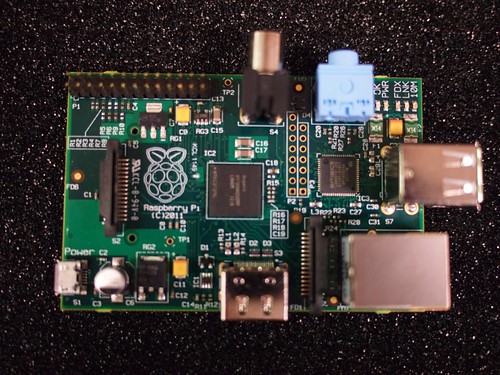Raspberry Pi is the Linux punk ethic

Who could have imagined that the Great Linux Breakthrough would not come via the Historical Inevitability of the Desktop Revolution, nor the Ubuntu On An Android but from a Humble Raspberry Pi.

Raspberry Pi model B, © The Raspberry Pi Foundation
This credit card sized computer has caught the imagination of the public, with MacHedz and WinFans both jumping on a rather overcrowded bandwagon that brought two retailer websites crashing to their knees when the launch was announced on Monday 29th February 2012.
Maybe it’s the sight of some raw circuit board that has elicited such frenzy, in the same way that a motorcycle engine is visible and therefore much more accessible so that bike riders know far more about their vehicles than car drivers.
A figure of 50,000 was being bandied about in the days after the launch, though 50,000 what exactly I wasn’t sure and can’t remember: Units ordered, twitter followers, page impressions? Whatever it was, 50,000 is a lot.
Admittedly, this figure is far less than for the iPhone, which is the single most popular computer in the world. The difference is, the Raspberry Pi is destined for the hands of hackers and doers, not just mute consumer users. These Pi People, it is hoped, will be building the future, hence the Raspberry Pi’s hope that it will inspire a whole generation of young creators.
And this is where the punk ethic comes in. Even I am too young to remember the glory punk years, the unfocussed discontent of a generation. It was also the continuation of a long trend of an alternative lifestyle outside of The System, where music was Done It Yourself. Anyone could pick up a guitar and many did. Much of the music might not have been all that. But that wasn’t the point.
Likewise with a hacker culture. Anyone can pick up a Pi (well, once they start shipping). And many will. Much of the code won’t be all that. But that won’t be the point.